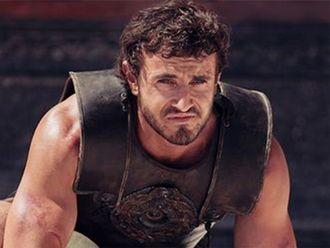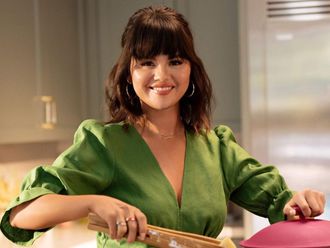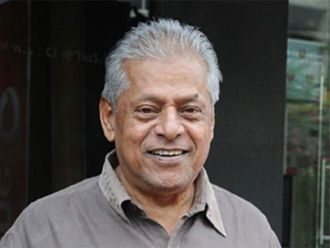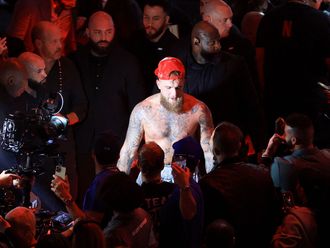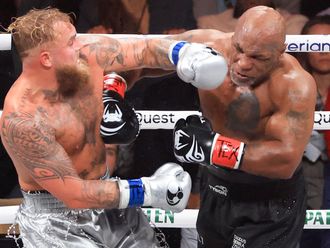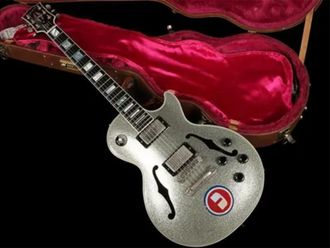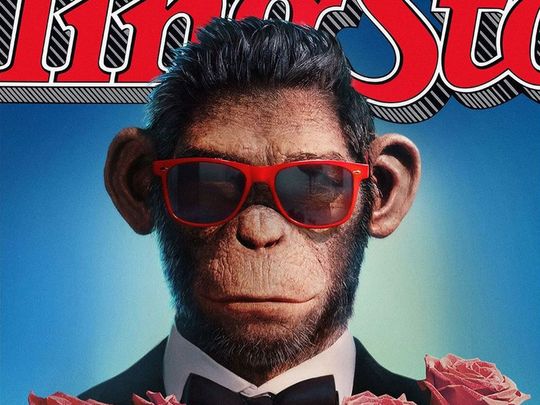
Washington: In his latest project, the much-anticipated biopic 'Better Man', Robbie Williams confronts the darker chapters of his life, including his struggles with addiction and troubled relationships.
The film, set to be released by Paramount Pictures, pulls no punches in its portrayal of Williams' turbulent past.
Taking responsibility for his own mistakes, Williams openly accepts his role as the "main villain" in the movie.
"There were many villains in this movie until we legally couldn't have many villains in this movie," Williams explained, adding, "Now the only villain in this movie is me. I'm quite happy to be the main villain in this movie," as per Deadline.
The candid reflection highlights the singer's willingness to hold himself accountable for his actions during a turbulent period in his life.
Among the film's many revelations, Williams touches on his complex relationship with his former 'Take That' bandmate, Gary Barlow.
Early drafts of the script were heavily biased towards Williams, portraying him as the victim in their famous feud.
However, after sharing the script with Barlow, Williams made sure to soften the portrayal.
"In the script, I speak how I spoke and I think how I thought back then," he said, adding, "We sent him the script and he rang me. Gaz phones me, 'Rob, I come off worse than Darth Vader in the first 'Star Wars','" as per Deadline.
Acknowledging Barlow's concerns, Williams agreed to make adjustments, ensuring a more balanced depiction of their relationship.
However, Williams was much less reserved when discussing his treatment of Nicole Appleton, his ex-girlfriend and member of the pop group All Saints.
Reflecting on their past, he expressed deep regret, admitting that he failed to be the partner she deserved.
"She didn't deserve the version of me she got," he said, adding, "I feel great shame I didn't represent myself in the best way possible because she deserves the best and deserves the best me and she didn't get it," as per Deadline.
Appleton's emotional response to the film was evident when the two shared a tearful FaceTime call after she viewed the finished project.
Williams, on the other hand, has concerns about showing the film to his estranged father, with whom he has a complicated relationship.
Williams' father left the family when he was young, and the singer remains hesitant to share the intimate details of his life on screen.
"I don't want him to see it," he confessed, adding, "I've done so much work on myself. I've rehabbed. I've therapied. I've lived in Los Angeles for 24 years. I've picked up on how to do this and heal yourself. Us Brits don't do that. My dad hasn't and hasn't needed to. We haven't had this conversation," as per Deadline.
A defining feature of 'Better Man' is Williams' unfiltered approach to sharing his personal struggles. In a manner that resonates with his candid personality, he explains that his neurodivergence plays a role in his openness.
"I don't pick up on the cues where normal people go, 'I better not share that or I better not share that,'" Williams said, adding, "I'm good with social cues. I get them. It's all this other stuff. I go, 'Here are my haemorrhoids.' People go, 'Maybe you should not show your haemorrhoids.' I go, 'Why? I have haemorrhoids. I don't get it,'" as per Deadline.
His bluntness and willingness to share even the most uncomfortable details have shaped both his public persona and the narrative in 'Better Man', making the film a deeply personal and revelatory project.
Whether it's his struggles with fame, addiction, or complicated relationships, Williams' biopic promises to offer a raw, unflinching look at the highs and lows of his extraordinary life.




